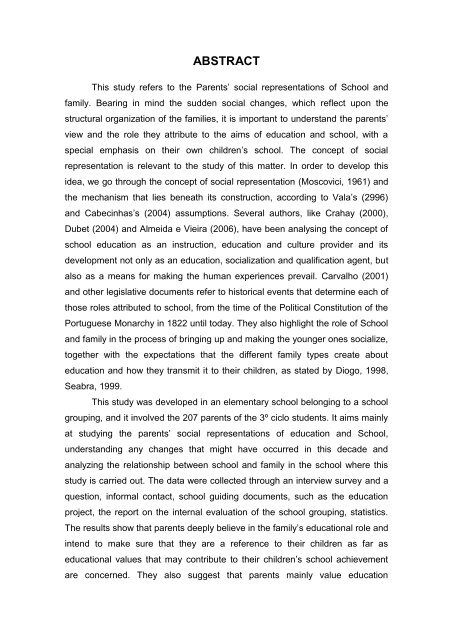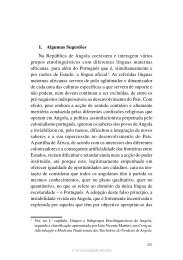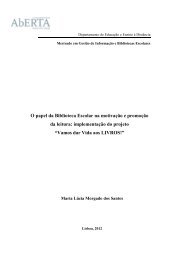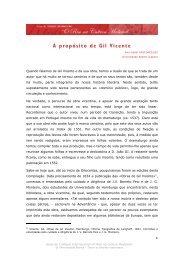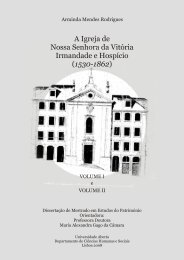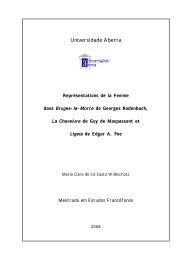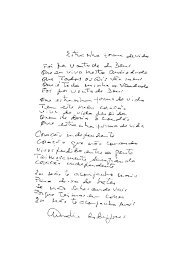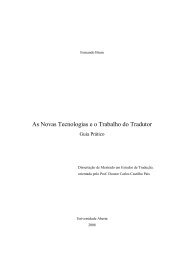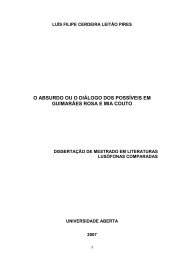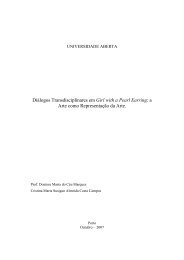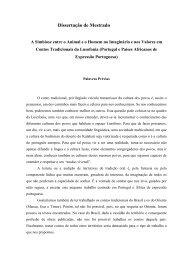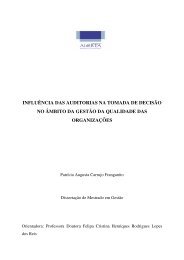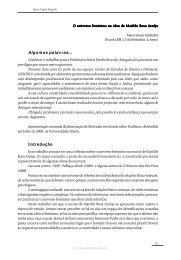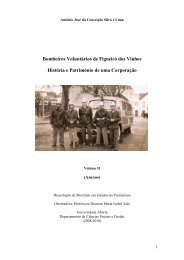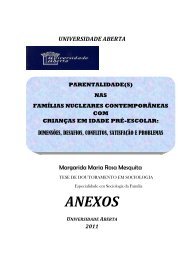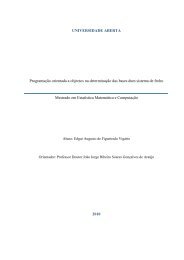Maria Isabel Pires Araújo - Universidade Aberta
Maria Isabel Pires Araújo - Universidade Aberta
Maria Isabel Pires Araújo - Universidade Aberta
Create successful ePaper yourself
Turn your PDF publications into a flip-book with our unique Google optimized e-Paper software.
ABSTRACT<br />
This study refers to the Parents’ social representations of School and<br />
family. Bearing in mind the sudden social changes, which reflect upon the<br />
structural organization of the families, it is important to understand the parents’<br />
view and the role they attribute to the aims of education and school, with a<br />
special emphasis on their own children’s school. The concept of social<br />
representation is relevant to the study of this matter. In order to develop this<br />
idea, we go through the concept of social representation (Moscovici, 1961) and<br />
the mechanism that lies beneath its construction, according to Vala’s (2996)<br />
and Cabecinhas’s (2004) assumptions. Several authors, like Crahay (2000),<br />
Dubet (2004) and Almeida e Vieira (2006), have been analysing the concept of<br />
school education as an instruction, education and culture provider and its<br />
development not only as an education, socialization and qualification agent, but<br />
also as a means for making the human experiences prevail. Carvalho (2001)<br />
and other legislative documents refer to historical events that determine each of<br />
those roles attributed to school, from the time of the Political Constitution of the<br />
Portuguese Monarchy in 1822 until today. They also highlight the role of School<br />
and family in the process of bringing up and making the younger ones socialize,<br />
together with the expectations that the different family types create about<br />
education and how they transmit it to their children, as stated by Diogo, 1998,<br />
Seabra, 1999.<br />
This study was developed in an elementary school belonging to a school<br />
grouping, and it involved the 207 parents of the 3º ciclo students. It aims mainly<br />
at studying the parents’ social representations of education and School,<br />
understanding any changes that might have occurred in this decade and<br />
analyzing the relationship between school and family in the school where this<br />
study is carried out. The data were collected through an interview survey and a<br />
question, informal contact, school guiding documents, such as the education<br />
project, the report on the internal evaluation of the school grouping, statistics.<br />
The results show that parents deeply believe in the family’s educational role and<br />
intend to make sure that they are a reference to their children as far as<br />
educational values that may contribute to their children’s school achievement<br />
are concerned. They also suggest that parents mainly value education


